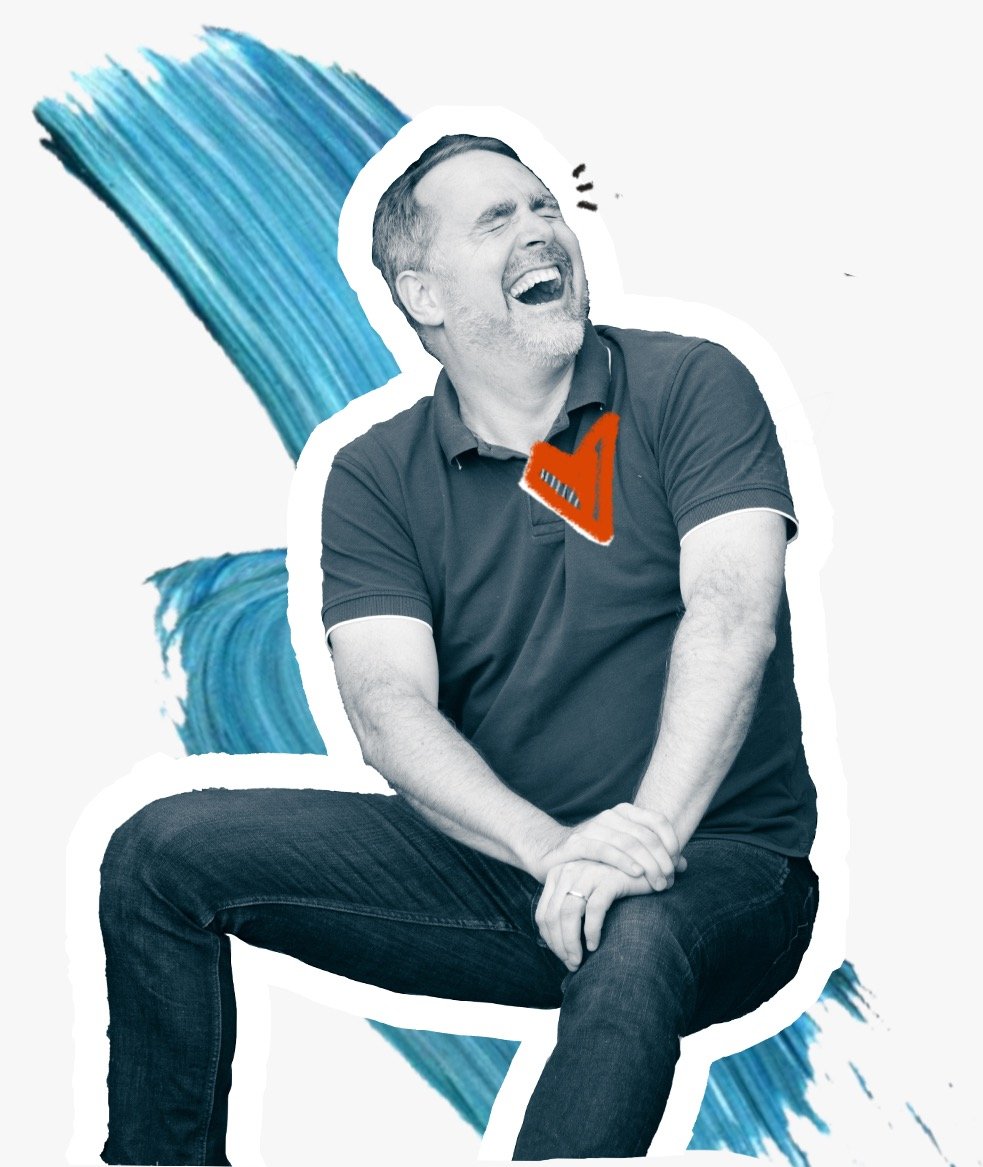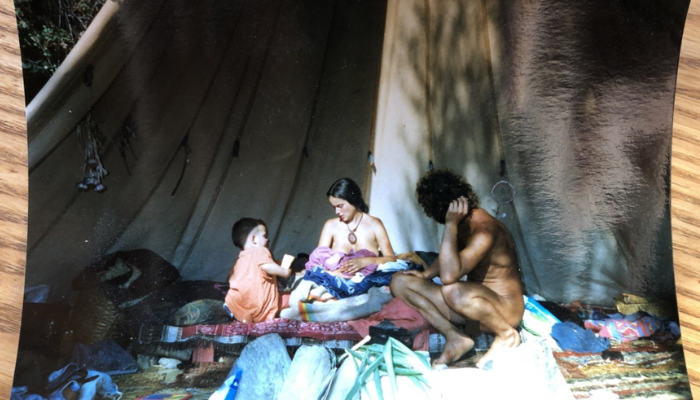I fly to visit Jewels Toro at her retreat center at the foothills of the Spanish pueblo Órgiva. The first thing I notice is the hippy-like quality of the surroundings. I can’t tell if the people are homeless or if it’s just the local style. I hear English spoken which gives me the impression that the location is an escape for neighboring counties to the north. The British are widespread, with a hint of Dutch and German. Even a cohort of Japanese have found this little space nestled at the bottom of the Apahara mountains.
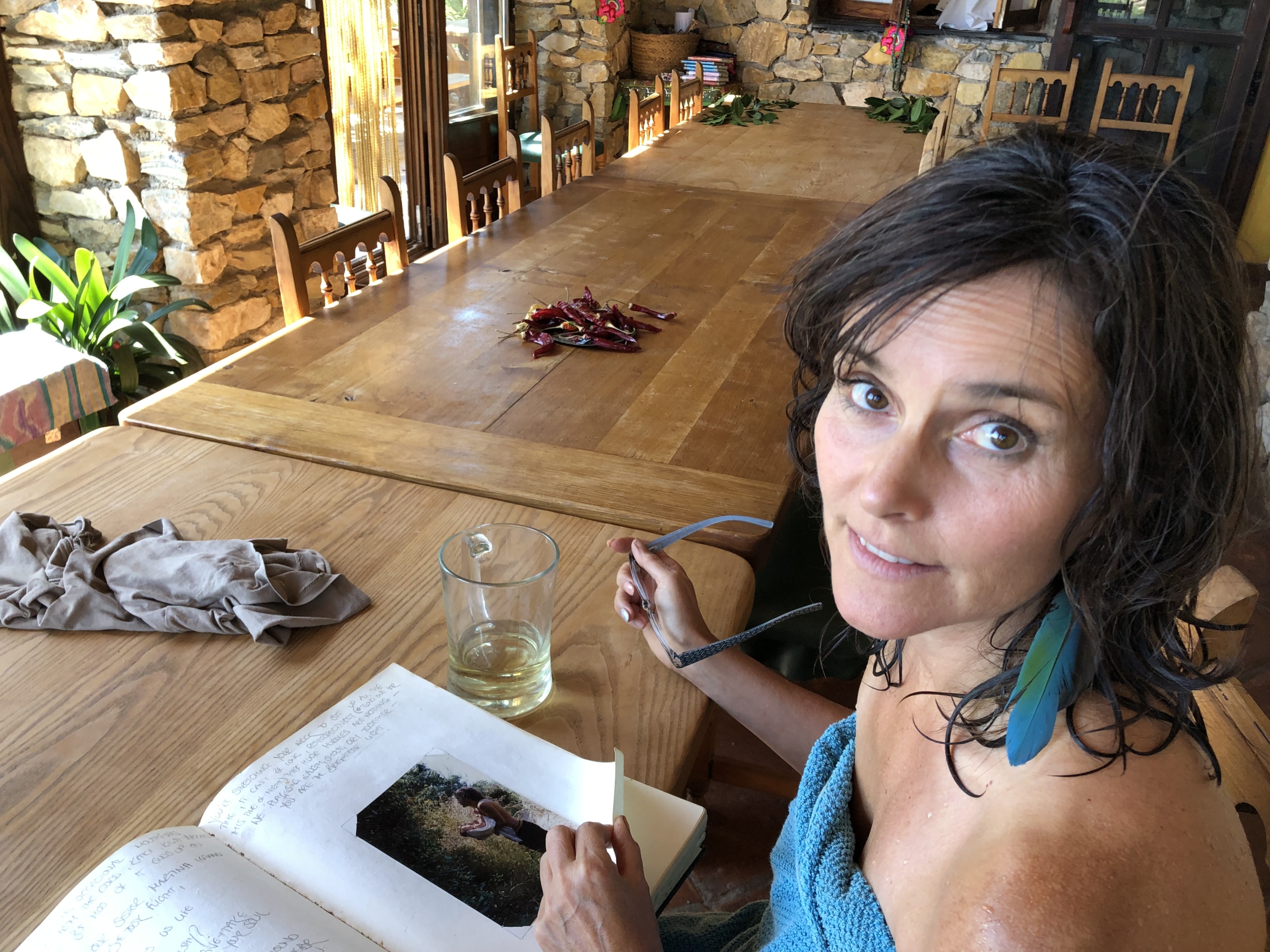
I sit and have a coffee as Bob, the local junkie, walks towards us to tell us what has happened to his knee. It appears as if he has broken it, but he clearly can’t afford to seek medical assistance. His body is withering and it looks as if his time on this earth is coming quickly to a close.
As I sit with Jewels, formally Julia, she shares with me her background. The time before she ran away with the hippies, over 30 years ago. She was a successful salesperson in London, who learned how to use her strength and beauty to convince. As she shares, “I was damn good at it. But I was empty inside.”
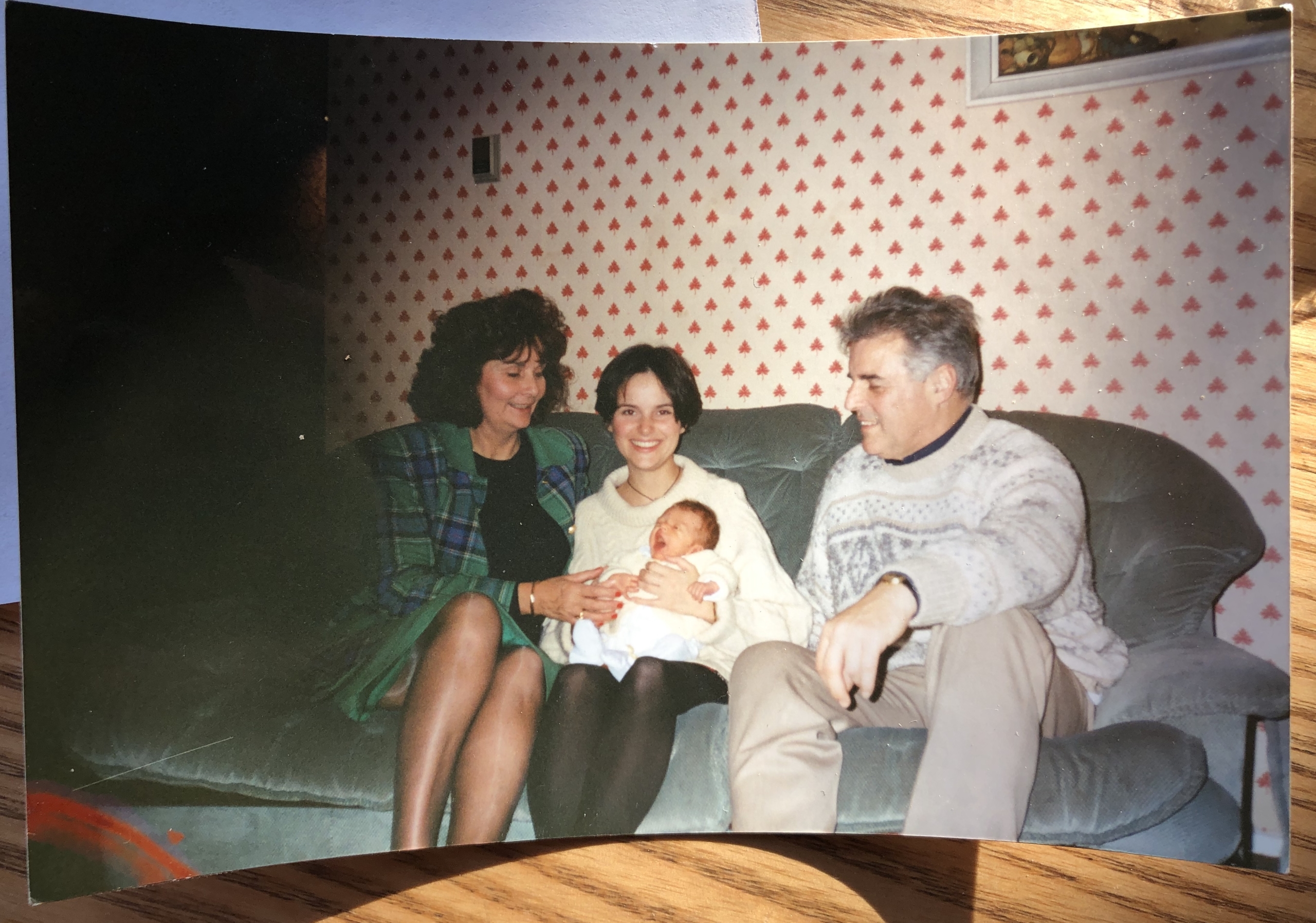
She continues, “At some point I realized that the late night parties and living a hedonistic lifestyle was only going to get me so far. I turned to spiritual books to find peace. In the midst of this, I ended a relationship and found out that I was pregnant. I ended up having the baby alone and spent the next three months alone in a house. I felt so isolated. I had everything that I needed. A washing machine. A bed. A roof over my head. But I had no joy.”
She continues, “Others in my family turned to religion, but I wanted something more. I wanted to feel the freedom of the wild. It was not long after that I left everything behind with my 3 month old baby and joined my first community. No plan. No schedule.”
I ask, “how was that?”
She replied, “I found a community in Somerset that was rallying against the creation of roads. It was quite possibly the community that I enjoyed most. It was me and my 3 month old.”
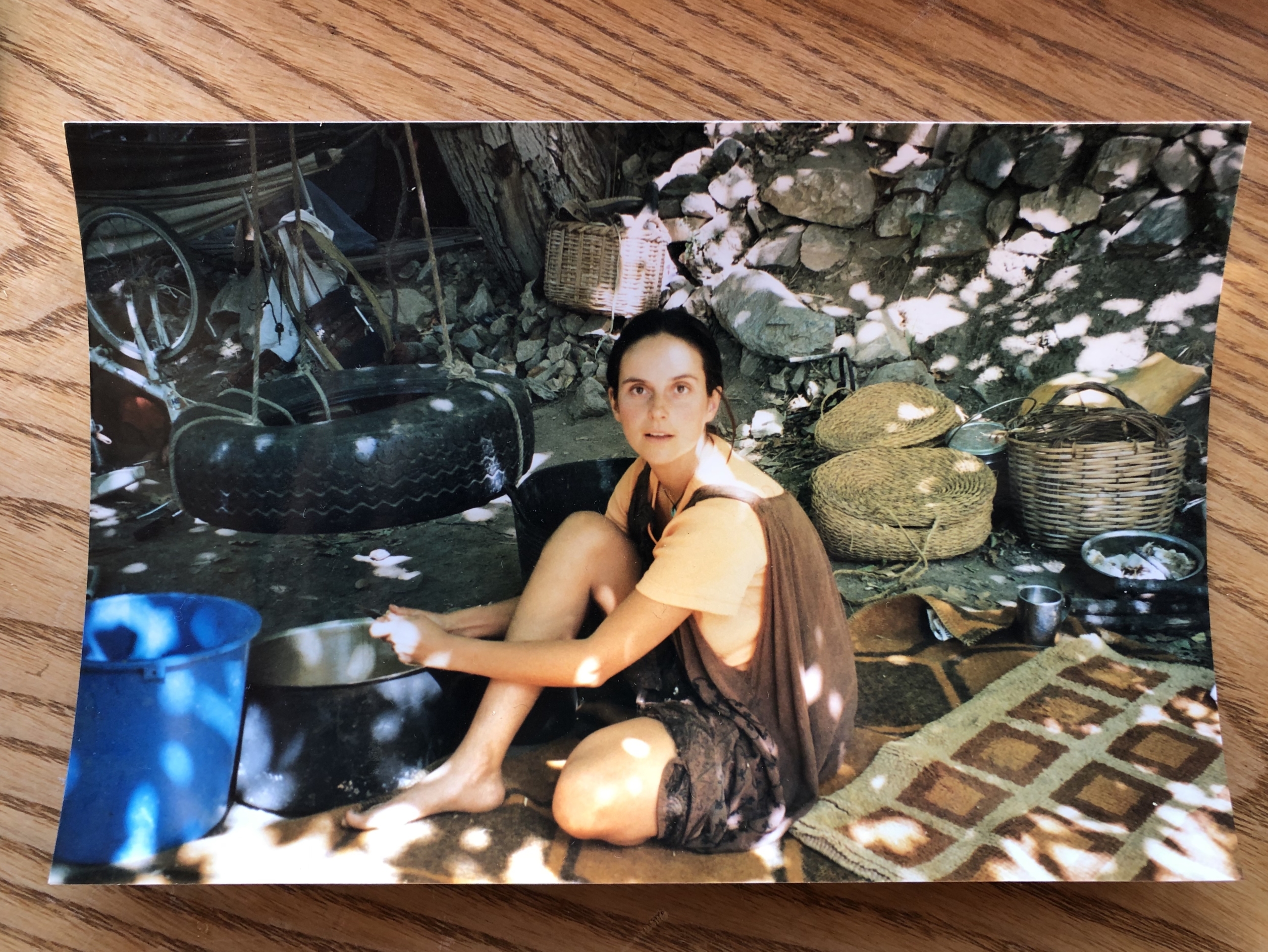
I ask, “why did you enjoy it so much?”
She replies, “Well community without purpose is not really interesting. You need to share a common purpose if you want to really feel the value of community. We were rallying against the building of roads and people would bring us food and tents. We would build underground tunnels and climb trees to stop the workmen. I was breastfeeding my six month old child when I stood in front of a bulldozer. I thought that they would stop, but they took my child and threw me in the back of the police wagon. That was at the tail end of my first community.“
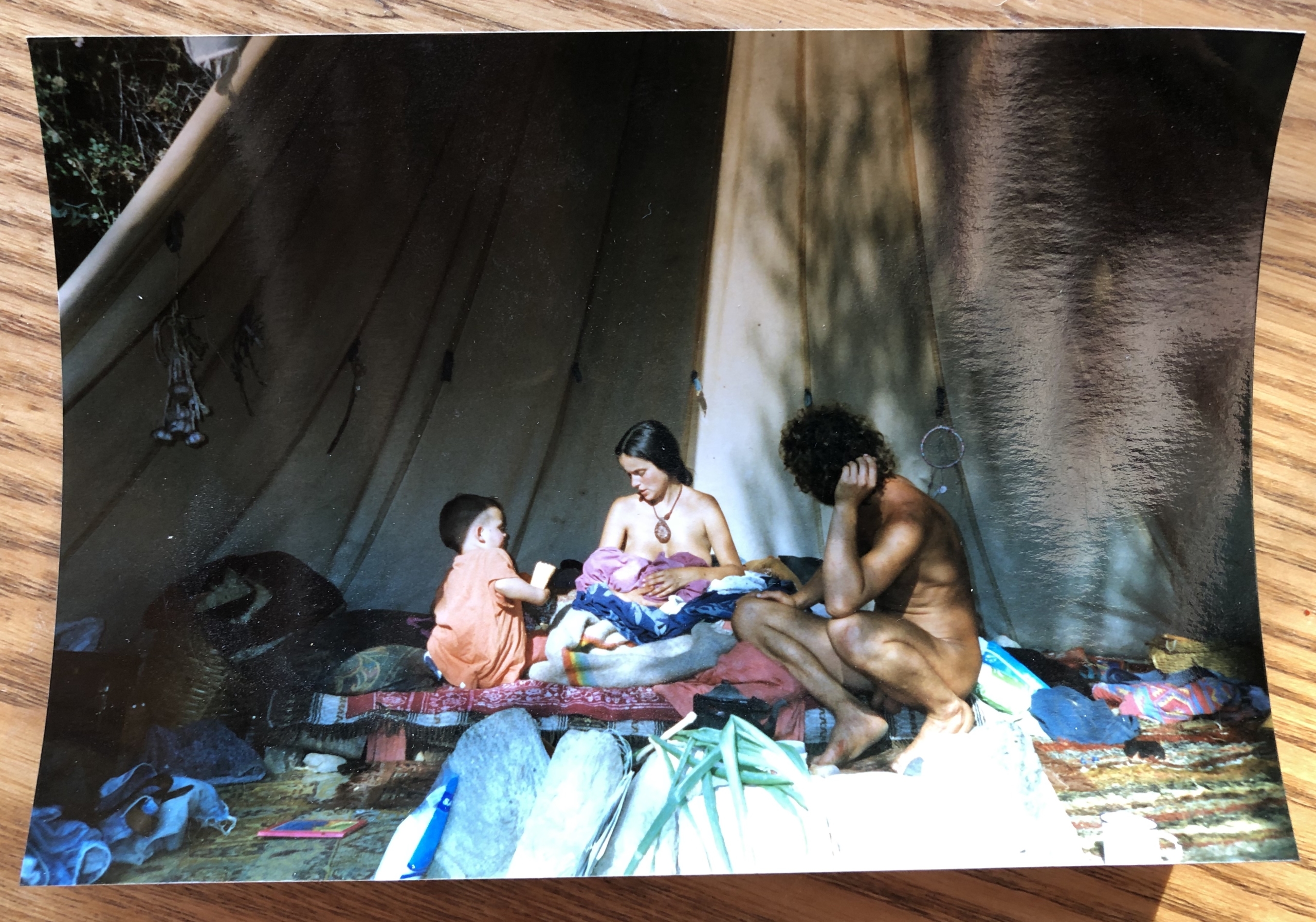
I ask, what did you learn?
She replies, “I learned that I liked this lifestyle and I decided to set out on a journey with the man I met there. “
She continued, “We spoke with friends that gave us an overview of all of the communities in Europe. We decided that we would track them down one by one until we found the one that we’d call home.”
It was not long after that they arrived at a spiritual community nestled in the foothills of the Apahara hills. Before they knew it, they were living in a teepee.
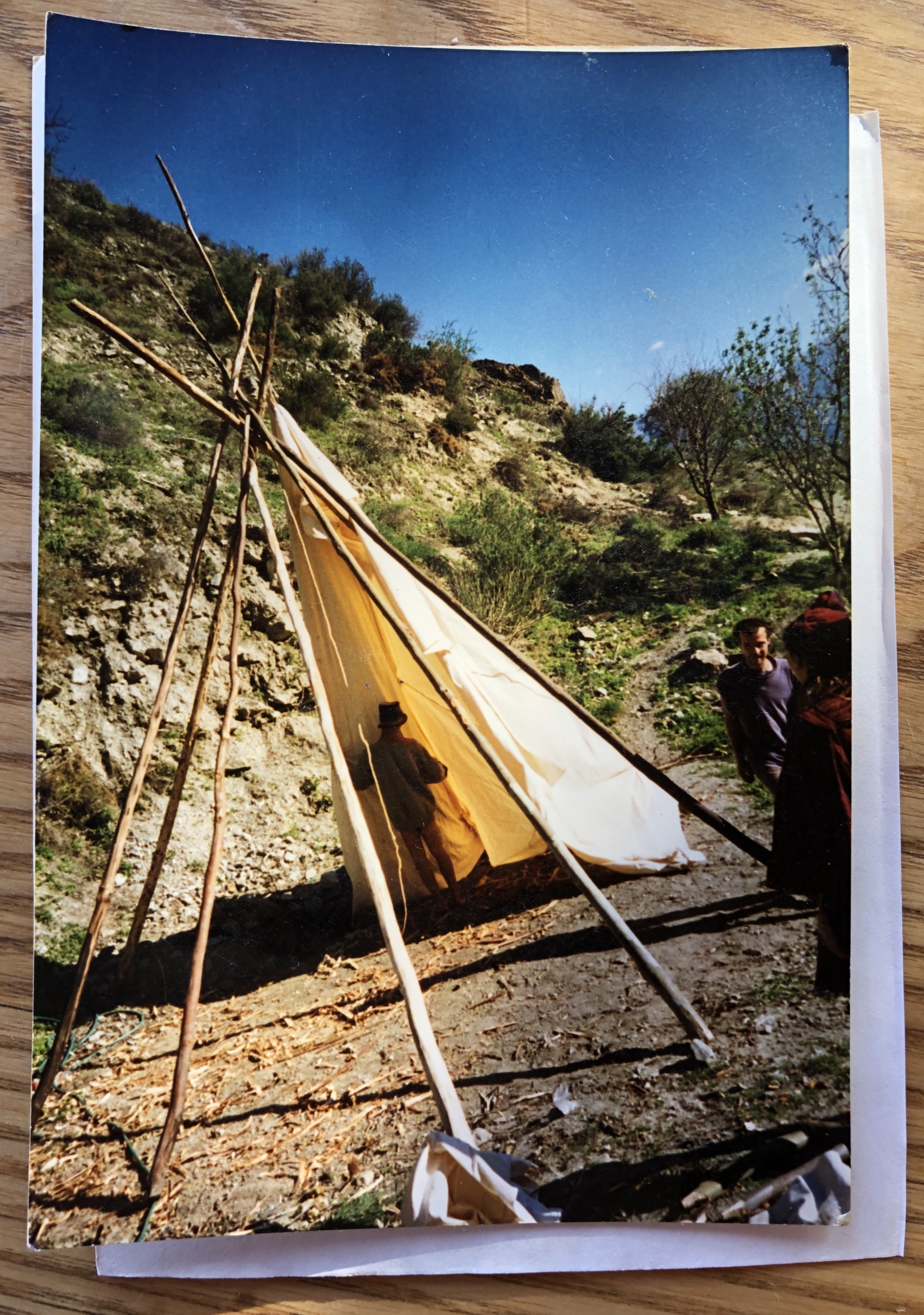
I ask, “How was it to raise your kids in a teepee?”
She says, “it was really quite normal. In fact if I compare it to my life in London, it was much easier. You have the entire community looking after you and your children. When you live in community, you can rely on one another.”
How was life in the community?
“The first thing I can think of is that many hands make light of work. Please focus on that aspect of community,” she asks.
“It’s an incredible feeling to be there for one another. We had several births in the community and it was always special to support one another. I can’t tell you how many times I would show up the morning after a birth and ask if I could help with the washing. I’ve washed more blood and poop out of sheets than you’d want to imagine. It is what we do. And everyone is grateful. We sang as we washed. There is something magical about being there for one another. Please make sure that’s in the story,” she repeats again.
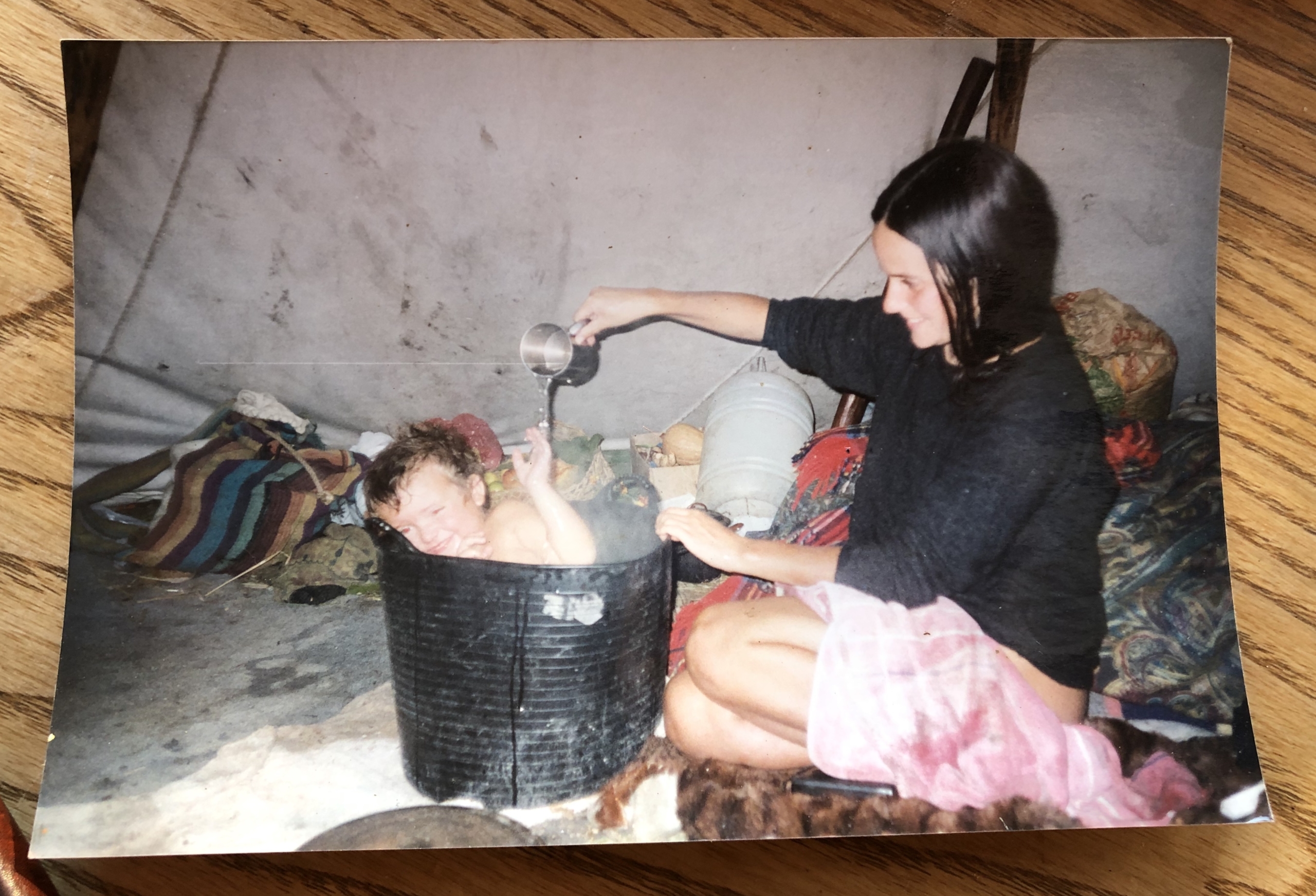
I’m curious, “How did you deal with food?”
She smiled and said, “We passed around the magic hat and everyone put whatever they could afford in it. Once we pooled all of our money together, we made a meal that everyone could share. Those that had a bit more, gave more. Those with less, less. No one was watching, so no one needed to feel uncomfortable. It was just part of community.”
I curiously ask, “What’s the worst thing that ever happened while you were living in community?”
She paused as she considered if she really wanted to share. “There was once a person traveling through who raped a woman in the community. He was tied to a post and the village spent the following days “rehabilitating” him. I never felt that the woman was supported in a way that I would have liked. I still feel bad about that today.”
She then goes on to share a few more stories that she asks I don’t repeat. “There are times that we settle things in community that we could never bring police in to solve for us.”
I ask, “How are decisions made in the community?”
She replies, “Well there are elders. Basically the oldest people in the community have the decision making authority. It is not always ideal, but it solves deciding who gets to decide.”
I ask, “What happens when people don’t get along?”
She replied, “You’d be surprised but things have a way of working themselves out. If people don’t get along someone will usually move on to another community or the elders settle it.”
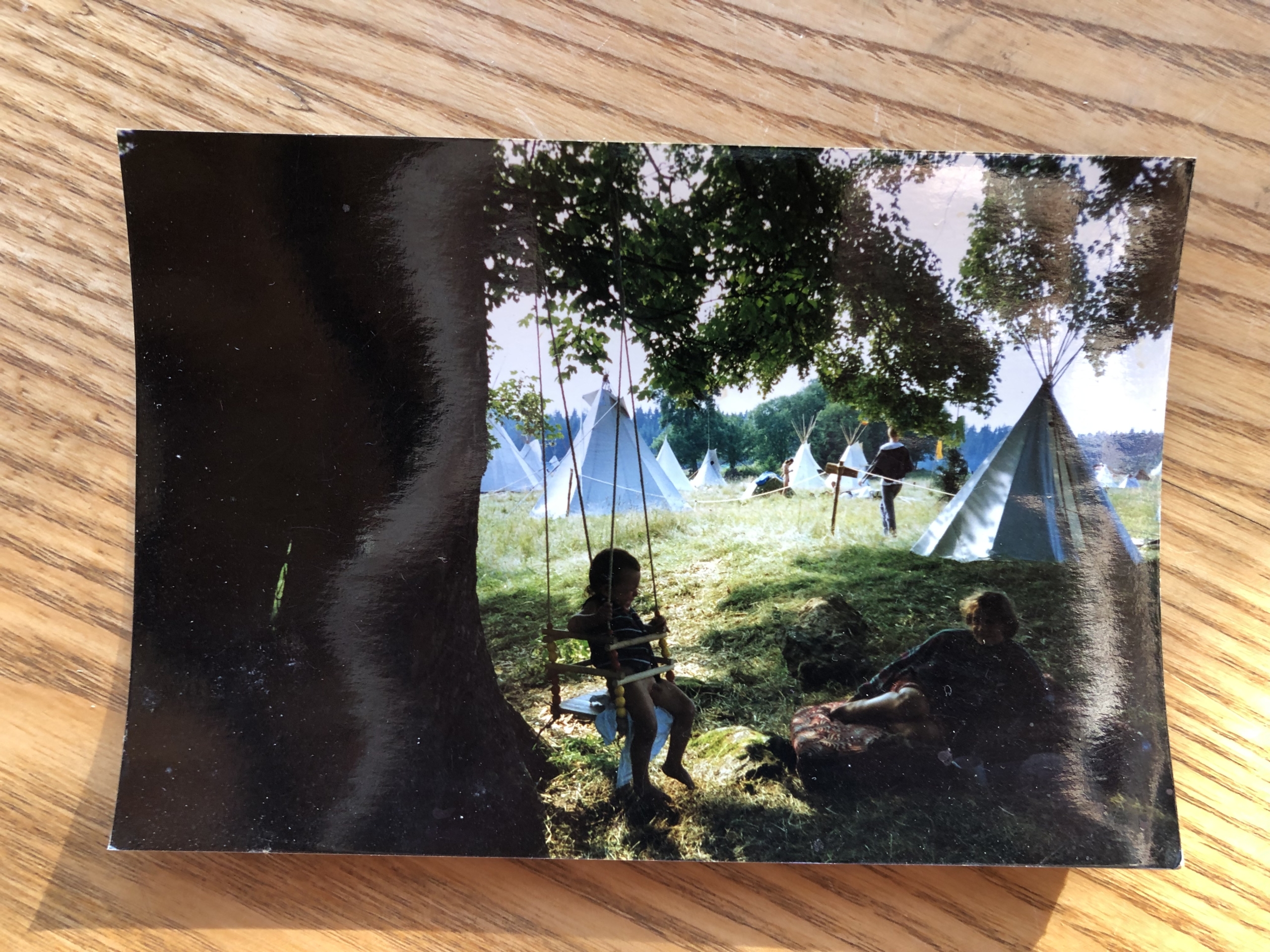
I ask, “What is the biggest threat you’ve witnessed in the communities you’ve been part of?”
Without a pause she says, “Unspoken agendas. Once people enter the community and don’t speak out what they want, it gets difficult. There is infighting as people have their own visions for how things develop, and if there is no common purpose pulling us together, you lose cohesion. That’s why purpose is so important. Without purpose, everyone can steer in their own direction and that is never good.”
She shares, “Although it’s not nice to say, some of the parents weren’t capable of raising their kids. The community would fill the gap. I raised many kids that were not my own.”
I ask, “What kind of activities did you do together as a community?”
Her eyes light up. “We have many. Every full moon we’d have a sweat lodge where we’d smoke some grass and sit in the covered space,” she sings the words as she recounts the event.
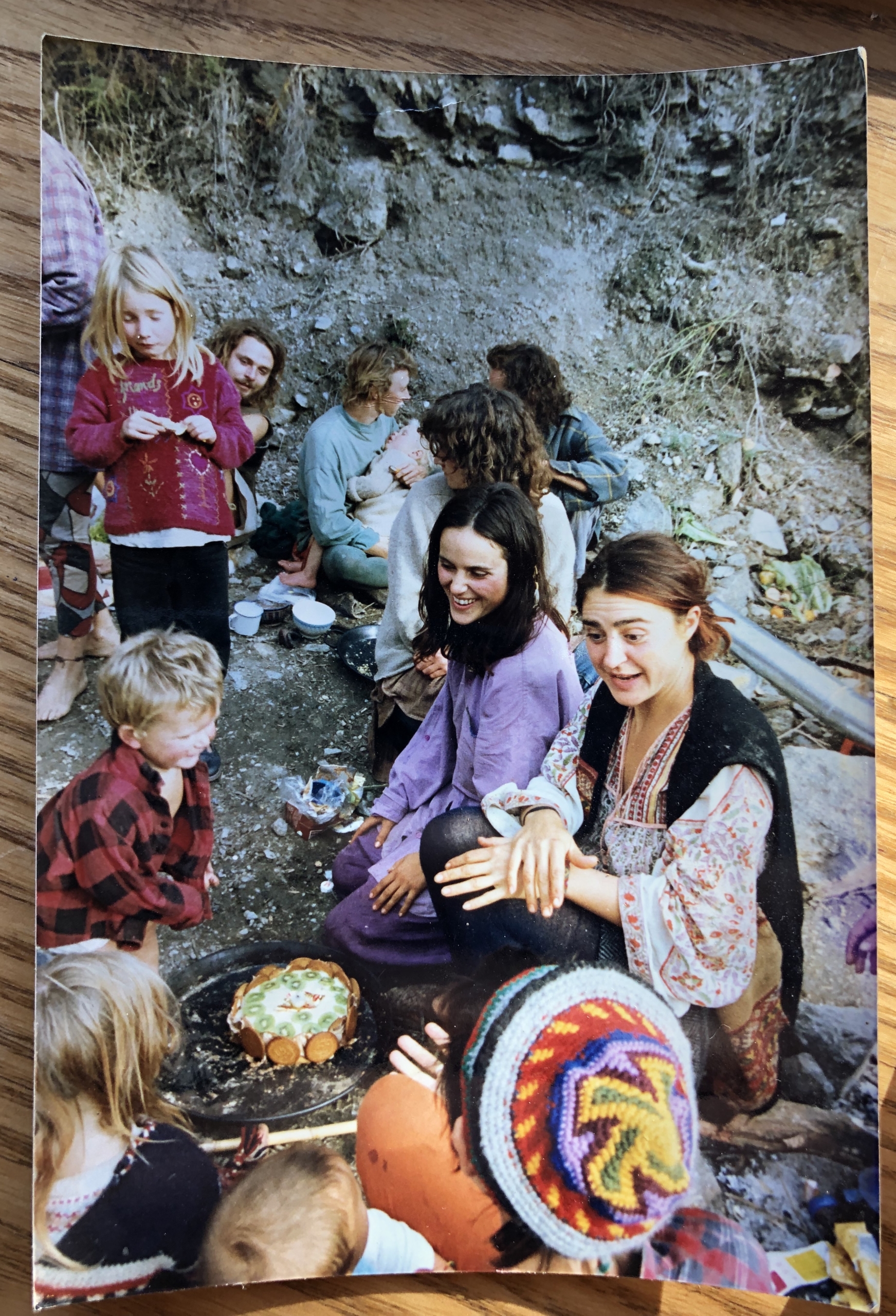
She continues, “we had celebrations for autumn and spring equinox, summer solstice, Beltane, a Gaelic festival where we’d sing Pagan songs. We even celebrated Samhain (Halloween) and Christmas. We celebrated everything. It was a time for us to share community.”
I close by asking her, “What is it about community that inspires you?”
She replies, “there are some things that you can only achieve with a group consciousness. There is nothing wrong with being alone, but there is a mirror that a community presents which is powerful. There is a unity that one outside of community cannot completely understand.”
I ask, “what did you get most out of living in community?”
She replies, “In many ways the community helped me raise my two kids. It was a chance for my kids to learn how to work through challenges in community. We all worked through challenges. We had a family much larger than our own.”
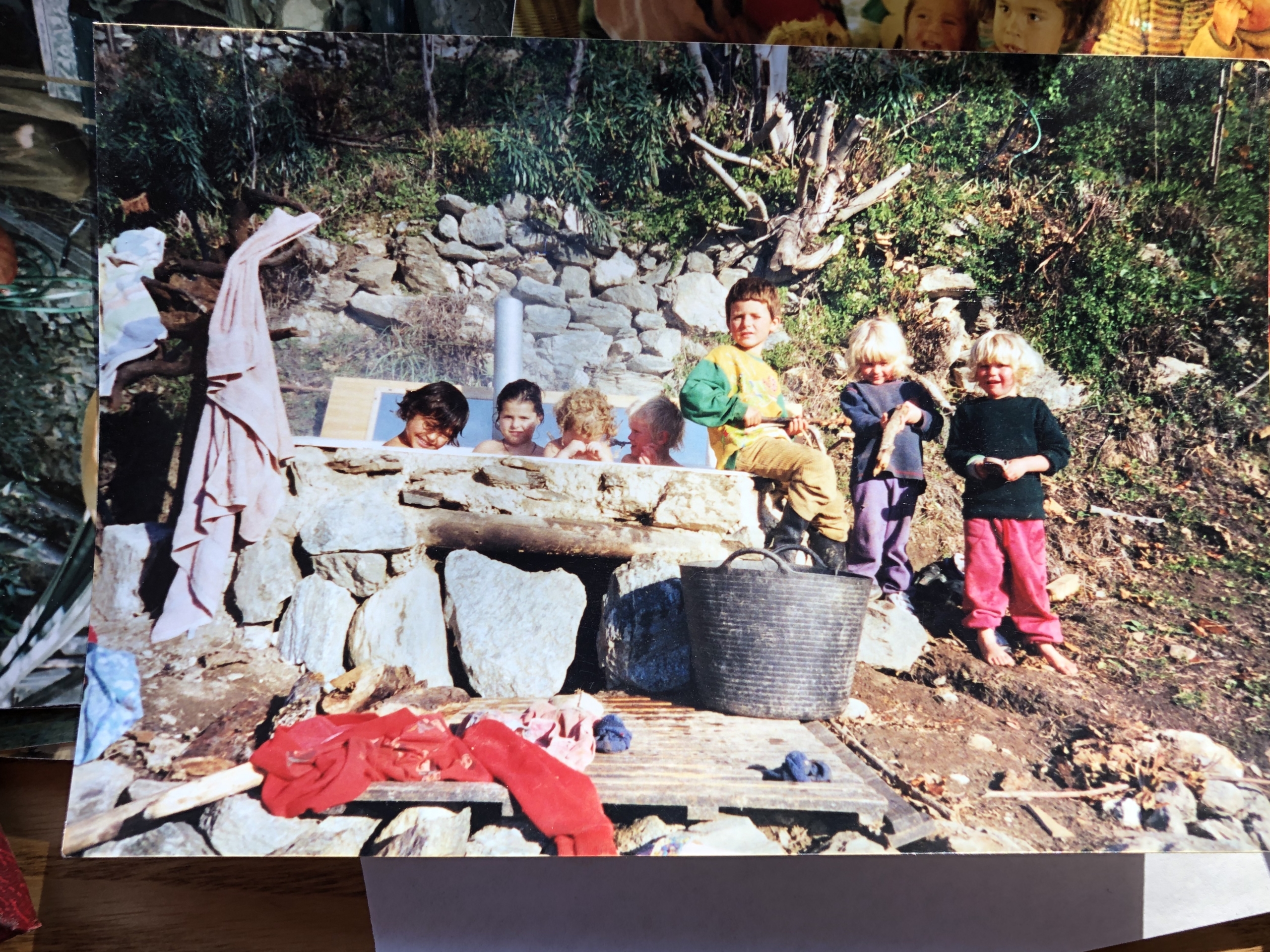
In stark contrast to her beginnings, Jewels now runs the Hidden Paradise retreat center not far from the teepee that she once lived in. She tells me that she’d like to offer a class in conscious community. Or intentional community. She does not distinguish between the two as she sees community is the point.
She says, “if I look back at it, it’s not hard to imagine going right back into that life. I see my child with his orange hair when we dyed it with henna. It was a wonderful time.”
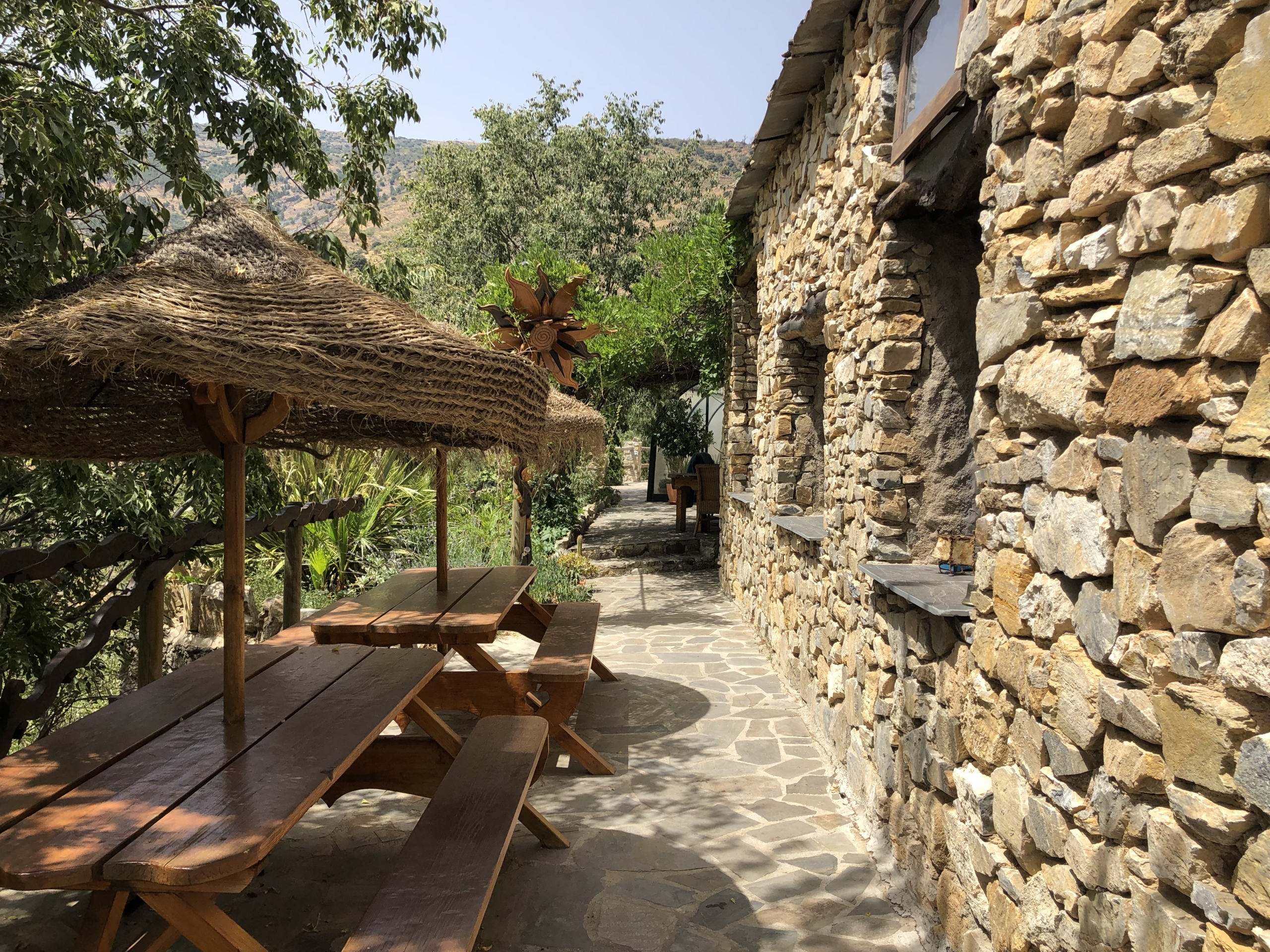
As I say goodbye to Jewels, I think of all the time I’ve spent in Northern California. I’ve heard the word “community” spoken so often that it’s lost much of its meaning. It’s become synonymous with people looking for like minded people to share their lives with. Another step in one’s spiritual journey. A time where group consciousness is required for one to fulfill the next step in their healing process.
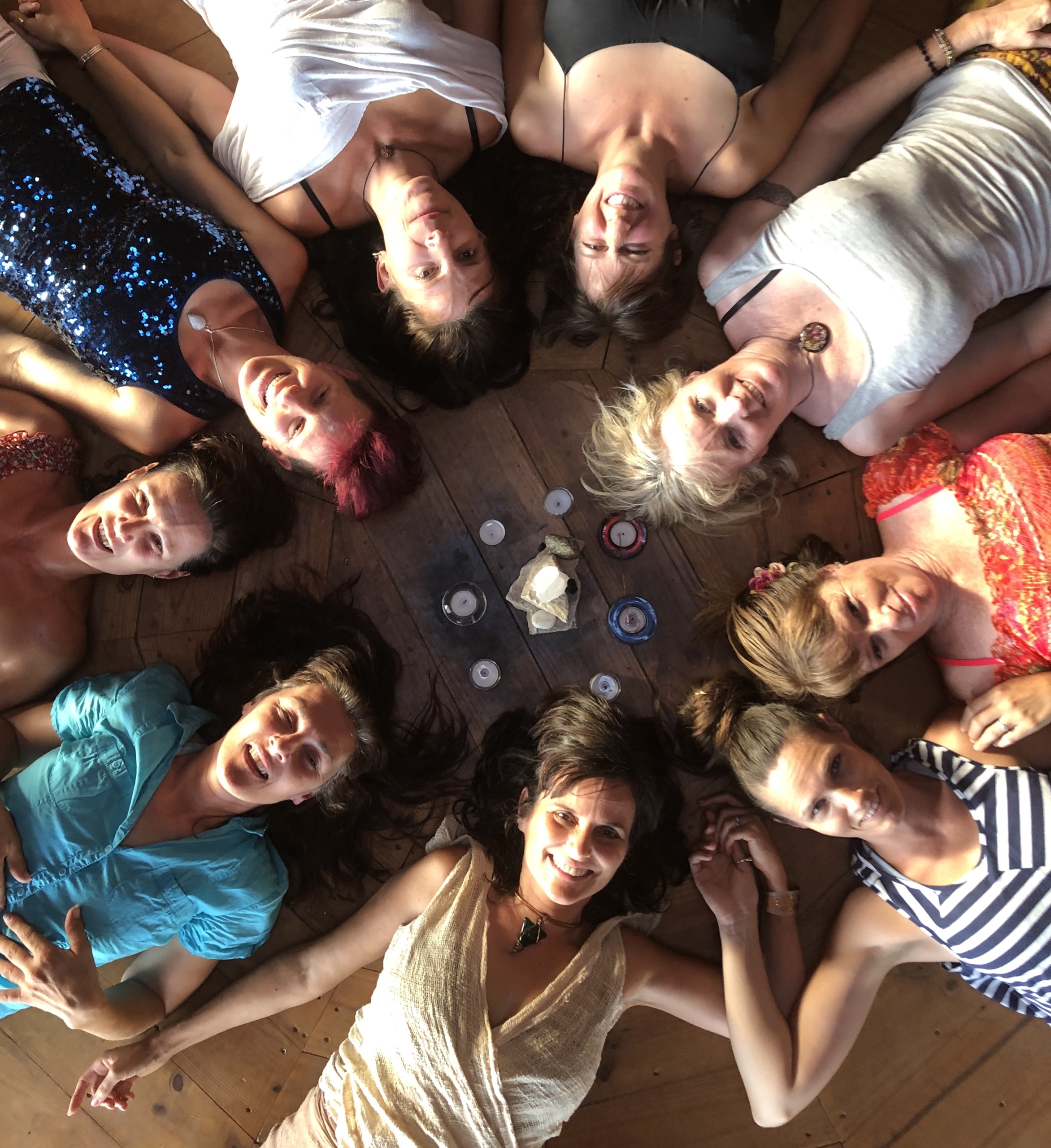
As I reflect on my talk with Jewels, it may be the first time community has ever made sense to me. I’m fiercely independent and I see that there is a love in community that I could only recognize by looking into Jewel’s eyes. She found a love there that I could not say that I had either experienced or understood. One thing was for certain, she radiated when she spoke about her days there and that glow turned into this story to guide others who may be considering making that step for themselves.
Please enjoy this interview with Jewels on my talk show “A Wonderful Chaos”: Ep. 33 LIVE | Living 30 years off the grid
————————————————–
Andy Chaleff is one of our heroes in the profound work of healing our world’s heart.
He is an acclaimed author, motivational speaker, talk show host of “A Wonderful Chaos”, conscious business advisor, and a beloved mentor to many, including the Buzzworthy team.
He dropped everything and devotionally toured across America for three months holding “Last Letter” healing circles for a wide array of communities to safely explore the depths of their grief, giving people permission to release suffering and move forward with an opened and unburdened heart.
His most recent body of work, “The Wounded Healer”, showcases personal stories of breakthroughs where most people deprive themselves of self-love. We are honored to showcase excerpts from this transformational series starting August 31st. A voice of clarity and wholeness in our transitional time.
